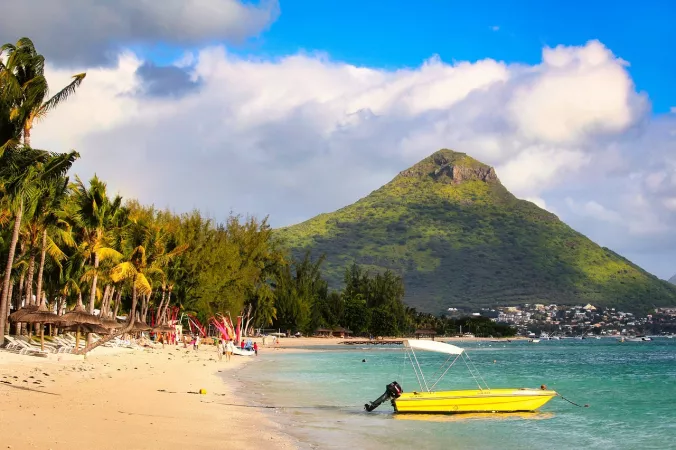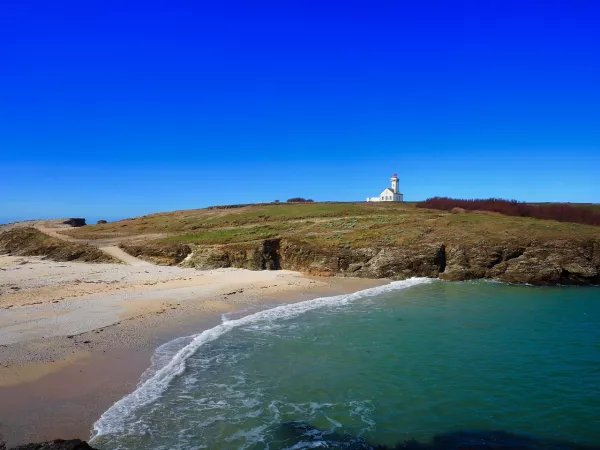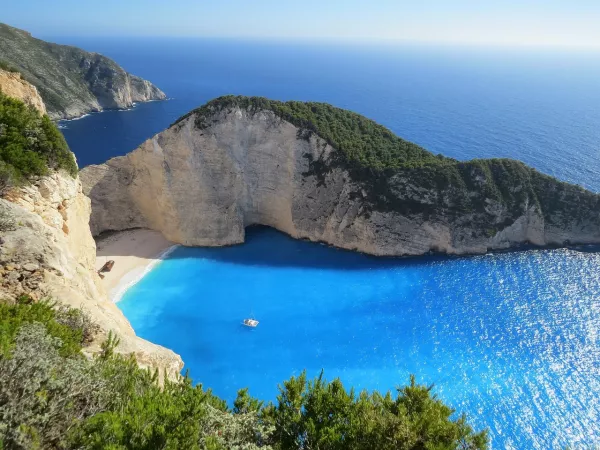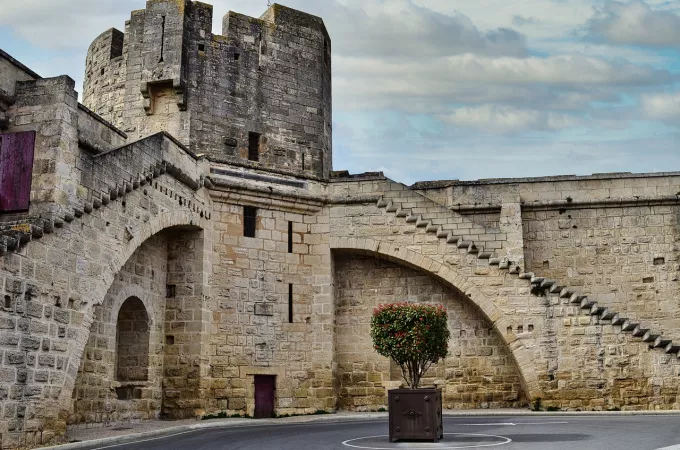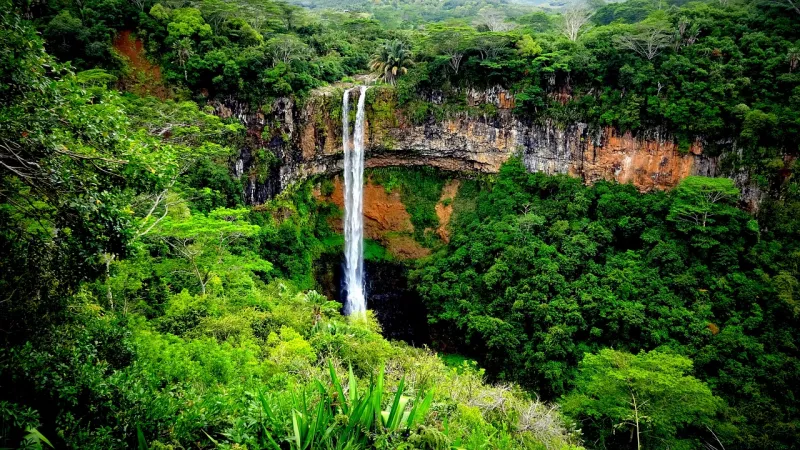
Chamarel
Duration
1 to 2 Days
1 to 2 Days
Best time to visit
May-Sep
May-Sep
Theme
Hill Station, Adventure, Wildlife
Hill Station, Adventure, Wildlife
Chamarel Travel Guide
Chamarel is a small village located in the southwest of Mauritius, known for its stunning natural beauty and unique attractions. This picturesque destination is famous for its seven-colored earth, a natural phenomenon where sand dunes display seven distinct colors. Chamarel is also renowned for its cascading waterfalls, lush forests, and rum distilleries, making it a must-visit destination for nature lovers and adventure seekers alike.Top Attractions in Chamarel
- Seven Colored Earth
- Chamarel Waterfall
- Rhumerie de Chamarel Distillery
- Black River Gorges National Park
- Chamarel Viewpoint
Chamarel is Famous for
Its unique seven-colored earth phenomenon.Top Attractions in Chamarel
- Seven Colored Earth
- Chamarel Waterfall
- Rhumerie de Chamarel Distillery
- Black River Gorges National Park
- Chamarel Viewpoint
What's Great about Travelling to Chamarel?
- Unique natural attractions
- Rich cultural experiences
- Great for nature enthusiasts
What's Not So Great about Travelling Chamarel?
- Limited nightlife options
- Remote location may not appeal to all travelers
- Not ideal for those seeking bustling city life
Travel Tips for Chamarel
- Check visa requirements before traveling
- Renting a car is recommended for exploring the area
- Stay hydrated and use sunscreen due to the tropical climate
Important Chamarel trip information
- Ideal Duration: 2-3 days
- Best Time to Visit: May to September for pleasant weather
- Nearby Airports and Railway Stations: Sir Seewoosagur Ramgoolam International Airport
FAQ's on Chamarel
Q1: What is the best time to visit Chamarel?
The best time to visit Chamarel is during the dry season, which typically runs from May to December. This period offers pleasant weather with less rainfall, making it ideal for outdoor activities and exploring the natural beauty of Chamarel. Additionally, August and September are great months to visit as the famous Seven Colored Earth is at its most vibrant during this time. Tourist seasons are usually busiest during July and August, so plan your trip accordingly to avoid crowds.
Q2: Do I need a visa to travel to Chamarel?
Travelers to Chamarel typically do not require a visa for short stays (up to 90 days) for tourism purposes. However, it is always advisable to check the specific visa requirements based on your nationality before traveling. Some exceptions may apply, so ensure you have a valid passport with at least six months validity beyond your intended stay. If you plan to stay longer or for purposes other than tourism, you may need to obtain a visa in advance.
Q3: What are the must-visit attractions in Chamarel?
Chamarel boasts a range of must-visit attractions, including the iconic Seven Colored Earth where you can witness the unique natural phenomenon of sand dunes in seven distinct colors. The Chamarel Waterfall, one of the highest in Mauritius, offers a breathtaking view amidst lush surroundings. Don't miss the Rhumerie de Chamarel for a taste of local rum production and picturesque views of the surrounding countryside. Nature lovers will enjoy the Black River Gorges National Park with its diverse flora and fauna, and the nearby beaches provide opportunities for relaxation and water activities.
Q4: Is Chamarel a safe place to travel?
Chamarel is generally a safe destination for travelers, with low crime rates and a welcoming local population. Like any other place, it is advisable to take standard precautions such as safeguarding your valuables and being aware of your surroundings, especially in crowded tourist areas. While the area is safe, it is recommended to avoid isolated areas or walking alone at night. By staying alert and following common-sense safety measures, you can enjoy a trouble-free visit to Chamarel.
Q5: What is the local currency in Chamarel and can I use credit cards?
The local currency in Chamarel is the Mauritian Rupee (MUR), and it is widely accepted throughout the country. While credit cards are accepted at most hotels, restaurants, and larger stores, it is advisable to carry some cash for smaller establishments and markets. ATMs are available in major towns for convenient access to cash. Notify your bank of your travel plans to ensure seamless card transactions, and check for any foreign transaction fees that may apply.
Q6: What is the local cuisine like in Chamarel?
Chamarel offers a diverse culinary scene with a mix of Creole, Indian, Chinese, and European influences. Local dishes often feature seafood, tropical fruits, spices, and rice. Don't miss trying the traditional Mauritian dishes like **"Dholl Puri"**, **"Rougaille"**, and **"Gateau Piment"**. Seafood lovers can indulge in fresh catches like octopus, fish, and prawns prepared in various flavorful ways. Street food stalls offer a taste of local snacks such as **"Samosas"** and **"Boulettes"**. Vegetarians will find plenty of options with dishes like **"Aubergine Farcie"**. Be sure to savor the **"Rum"** from the region, which is a popular local drink.
Q7: What transportation options are available in Chamarel?
In Chamarel, travelers have various transportation options to explore the area. Renting a car is a popular choice for flexibility and convenience, allowing you to visit different attractions at your own pace. Taxis are also available, but it's advisable to negotiate fares beforehand. Public buses connect Chamarel to other parts of the island, providing an affordable way to travel, although schedules may be less frequent. Guided tours are another option for exploring the region, offering insights from local guides. If you prefer a more adventurous experience, consider renting a scooter or bicycle to navigate the scenic routes around Chamarel.
Q8: Are there any cultural norms or etiquette I should be aware of when visiting Chamarel?
When visiting Chamarel, it is important to respect the local customs and traditions of the Mauritian culture. Dress modestly when visiting religious sites or local villages, and remove your shoes before entering someone's home. Greeting people with a smile and a handshake is common practice, and it is polite to address individuals with their formal titles such as "Mr." or "Mrs." when meeting them for the first time. Avoid public displays of affection, especially in more conservative areas. When dining with locals, wait for the host to start eating before you begin. Learning a few words in the local language, such as **"Bonjour"** for hello, will be appreciated by the locals and enhance your cultural experience in Chamarel.
Q9: I am a travel agent. How can I buy travel leads of Chamarel?
Register yourself as a travel agent at agents.tripclap.com and then you can buy travel leads to Chamarel once your account is approved. For more details contact our support team at +91-8069186564 or support@tripclap.com

